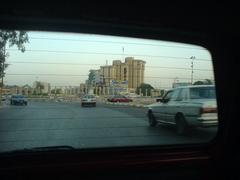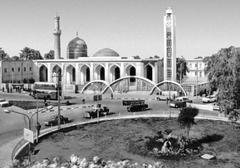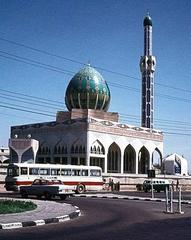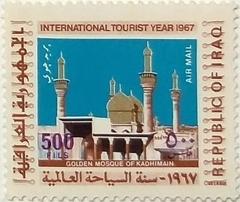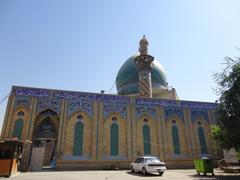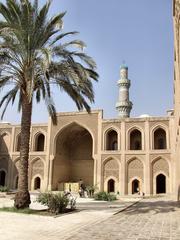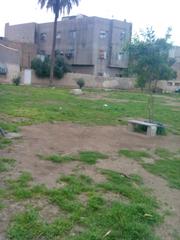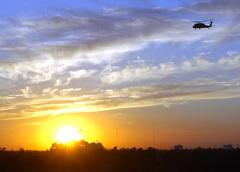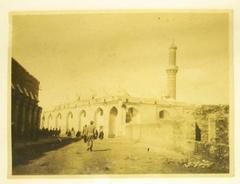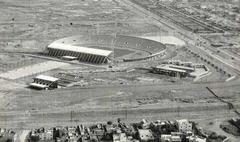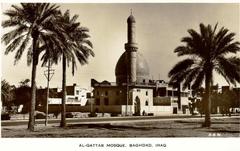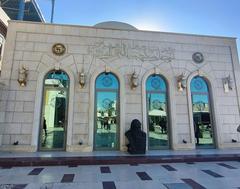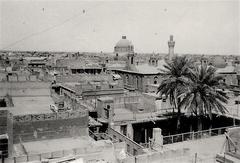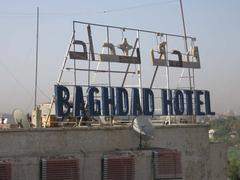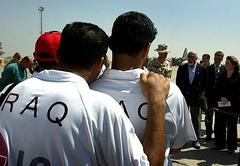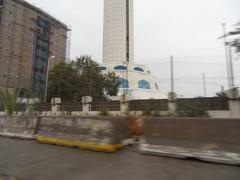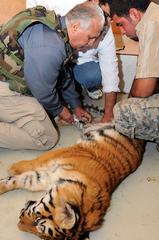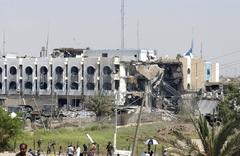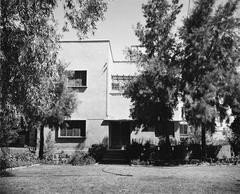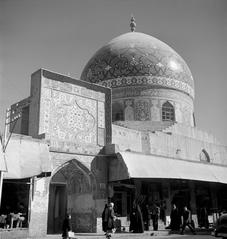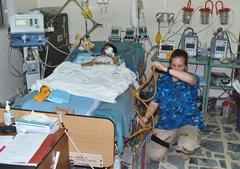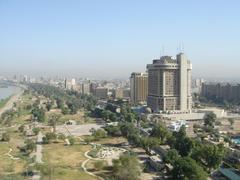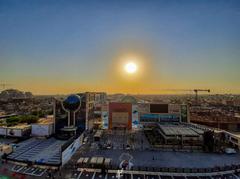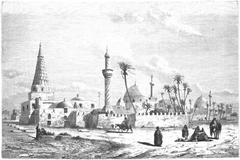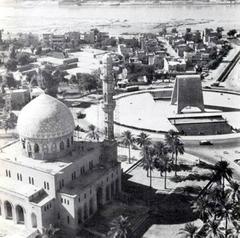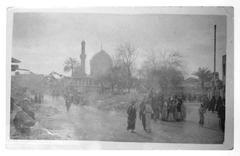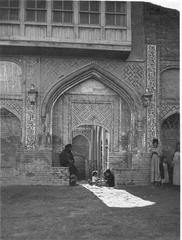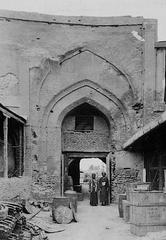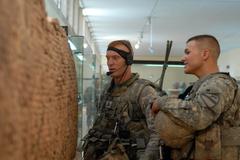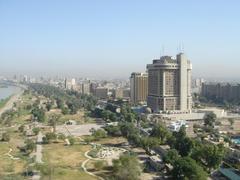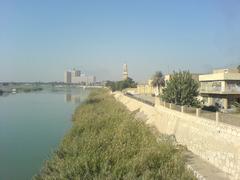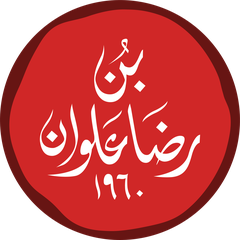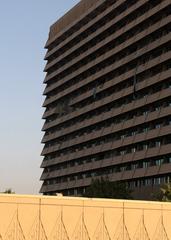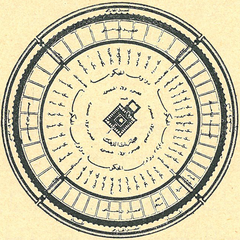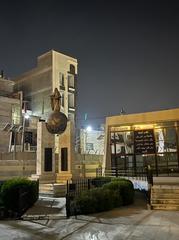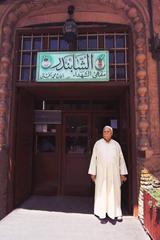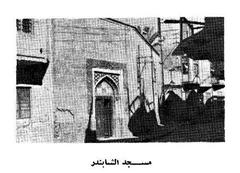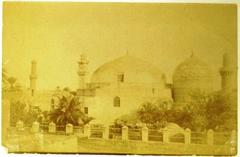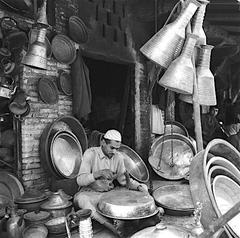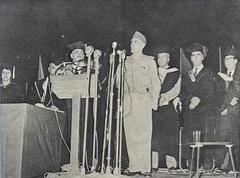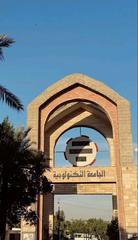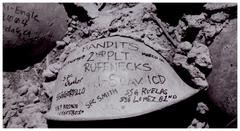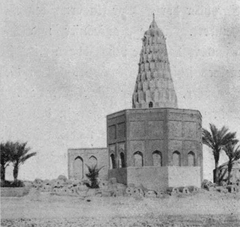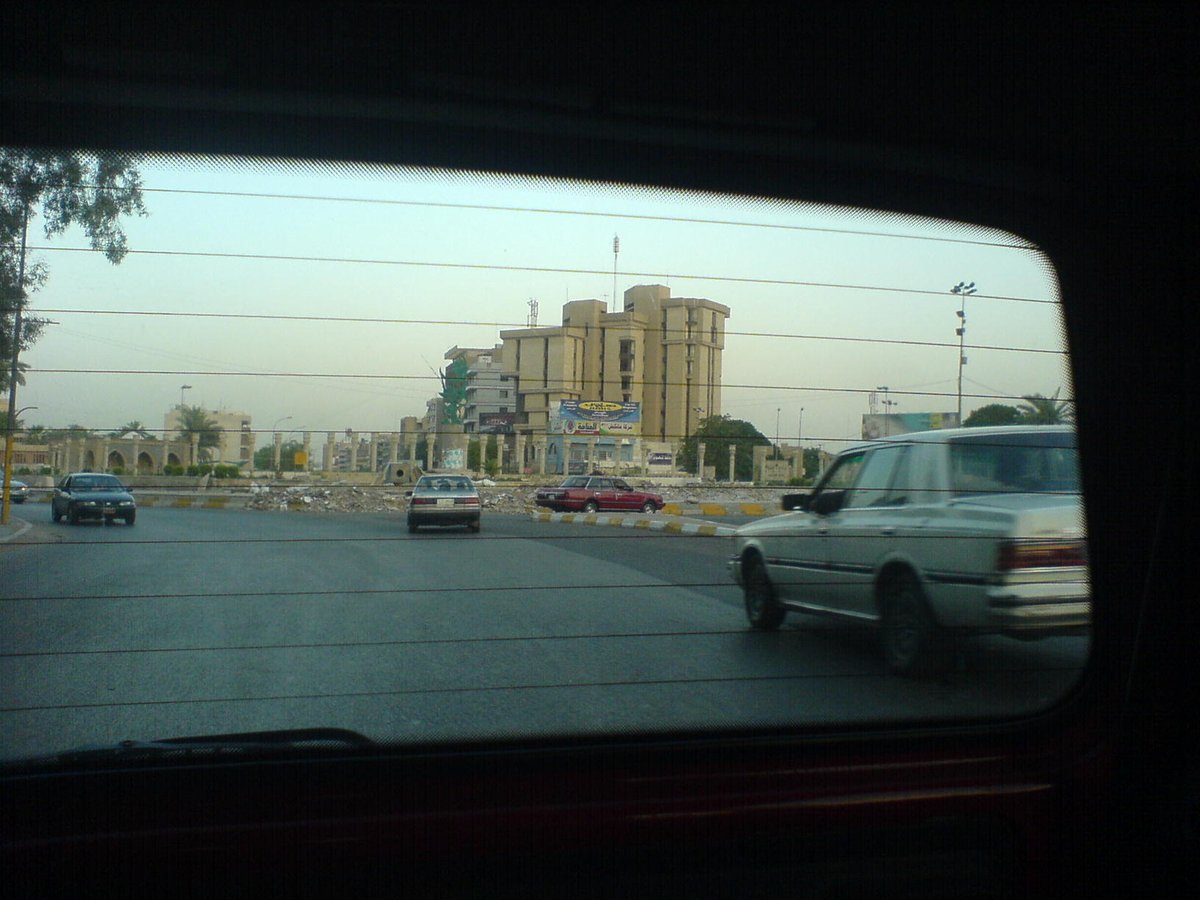
Firdos Square, Baghdad: Visiting Hours, Tickets, and Historical Significance
Date: 15/06/2025
Introduction
Firdos Square (ساحة الفردوس, Sāḥat al-Firdaus), centrally located in Baghdad, Iraq, is a powerful symbol of the city’s layered history and its evolving identity. This prominent public space has been at the heart of significant cultural, political, and social transformations, from honoring Iraq’s war dead to serving as the backdrop for the toppling of Saddam Hussein’s statue in 2003—an image broadcast worldwide that came to define a pivotal moment in Iraq’s modern history. Today, Firdos Square stands as both a living monument and a vibrant urban park, welcoming locals and travelers alike to reflect on the city’s past and experience its contemporary pulse (Independent; Majalla).
This guide presents a detailed overview of Firdos Square’s history, visiting information, safety considerations, nearby attractions, and practical travel tips—equipping you to explore this landmark with greater appreciation and confidence.
Table of Contents
- Introduction
- History and Political Significance
- Cultural Importance and Urban Setting
- Visiting Firdos Square: Hours, Tickets & Accessibility
- Safety Considerations and Travel Tips
- Nearby Attractions
- Visitor Experience and Photography
- Frequently Asked Questions (FAQ)
- Conclusion
- References
History and Political Significance
Firdos Square’s legacy is interwoven with Iraq’s modern narrative:
- 1959: The square was originally the site of the Monument to the Unknown Soldier, designed by Rifat Chadirji to honor Iraq’s fallen soldiers.
- 2002: Saddam Hussein’s regime installed a prominent bronze statue of the leader, symbolizing state authority.
- 2003: The statue’s dramatic toppling by Iraqis and U.S. forces became a defining image of the Iraq War, symbolizing the fall of Saddam’s regime (Independent).
In subsequent years, Firdos Square has continued to reflect Iraq’s shifting political landscape. The green abstract “Freedom” sculpture, installed after the fall of Saddam, was later replaced with a park and a large mural of Iranian General Qassem Soleimani and Imam Hussein, signaling new political and religious influences in Iraqi public life (Majalla).
Cultural Importance and Urban Setting
Firdos Square is not just a historical site but a vital urban space where Baghdad’s daily life unfolds:
- Community Hub: Locals gather here for leisure, conversation, and commemorative events. The park’s greenery and fountains offer a calming respite amid the city bustle (Evendo).
- Central Location: Situated on al-Sa’doun Street, the square is flanked by the iconic Palestine Hotel and Sheraton Ishtar, and is near major landmarks like Tahrir Square and Mutanabbi Street (wildtrips.net).
- Cultural Vibrancy: The square’s lively atmosphere is enhanced by street vendors, artists, and families enjoying the space, reflecting Baghdad’s enduring spirit.
Visiting Firdos Square: Hours, Tickets & Accessibility
- Hours: Firdos Square is open 24 hours a day, year-round. Daytime visits (8:00 AM to sunset) are recommended for safety and to enjoy the park’s features.
- Admission: Entry is free; there are no tickets required.
- Accessibility: The square is accessible via major roads and taxis. Wheelchair access is available via paved walkways, though some surfaces may be uneven. Nearby hotels provide additional facilities (joaoleitao.com; Evendo).
Safety Considerations and Travel Tips
While Firdos Square and central Baghdad are safer than in previous years, travelers must remain vigilant:
- Security Risks: Threats include terrorism, civil unrest, and kidnapping, particularly for foreigners (TravelSafe-Abroad; African Jacana). Avoid large gatherings and monitor local news.
- Best Practices:
- Visit during daylight and avoid the area at night.
- Dress modestly; respect local customs.
- Use licensed taxis or transportation arranged by reputable hotels.
- Hire a trusted local guide or join organized tours for enhanced safety (travellikeaboss.org).
- Carry identification and keep valuables secure.
- Health: Drink only bottled water, eat at reputable establishments, and ensure your vaccinations are up to date (travellikeaboss.org).
- Cultural Sensitivity: Learn basic Arabic greetings, avoid political discussions, and always ask before taking photographs of people or sensitive sites.
Nearby Attractions
Make the most of your visit by exploring these sites near Firdos Square:
- Tahrir Square: Historic plaza and center of recent political demonstrations.
- Mutanabbi Street: Famed for its book market and literary culture.
- National Museum of Iraq: Showcasing ancient Mesopotamian artifacts (wildtrips.net).
- 17th of Ramadan Mosque: Architectural landmark directly opposite the square.
- Al-Rashid Street: A bustling thoroughfare rich in history and commerce.
- Green Zone: Government and diplomatic district (access may be restricted).
Visitor Experience and Photography
- Atmosphere: Expect a blend of solemnity and daily life—families, youth, and visitors enjoying the park’s ambiance.
- Photography: Popular for photos of the Freedom sculpture, murals, and urban landscape. Always be mindful of local sensitivities and avoid photographing security personnel or government buildings without permission (travellikeaboss.org).
- Facilities: Nearby hotels offer amenities such as cafés, restrooms, and ATMs.
Frequently Asked Questions (FAQ)
Q: What are Firdos Square’s visiting hours?
A: Open 24/7, but daytime visits are advised for safety and optimal experience.
Q: Is there an entrance fee?
A: No, entry is free.
Q: Are guided tours available?
A: Yes, local operators offer guided visits including Firdos Square and other historic sites.
Q: Is it safe to visit?
A: The area is relatively safe by day due to security presence, but risks persist; always follow safety guidelines and advisories.
Q: Is the square wheelchair accessible?
A: The main walkways are accessible, though some uneven terrain may require assistance.
Q: Can I enter the Green Zone from Firdos Square?
A: Access requires special permission or official accompaniment.
Conclusion
Firdos Square is more than just a monument or park—it is a microcosm of Baghdad’s resilience, complexity, and aspirations. Its evolving landscape, from the memorials of the past to new symbols of contemporary politics, mirrors Iraq’s ongoing journey. For visitors, the square offers a unique opportunity to witness history, engage with local culture, and reflect on the enduring spirit of the Iraqi people.
Travelers are encouraged to plan carefully, prioritize safety, and approach their visit with respect and curiosity. By doing so, you can experience the heart of Baghdad in a way that is both meaningful and memorable.
For further guidance, practical tips, and the latest updates, download the Audiala app, explore our related travel articles, and follow us on social media.
References
-
This article draws upon information and reports from the following sources for accuracy and up-to-date guidance:
